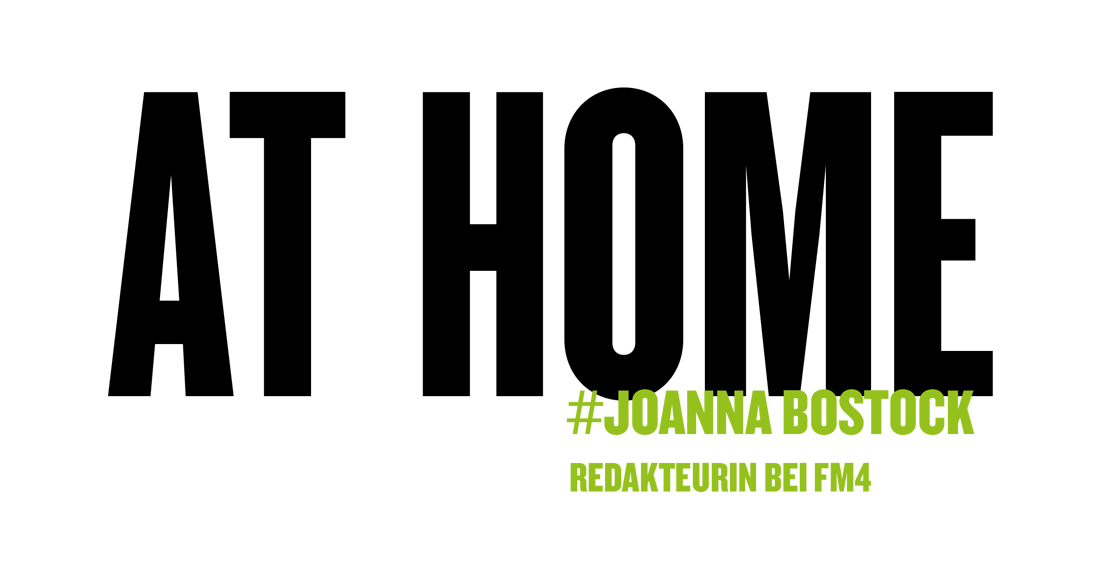[Eine Seite zurück]
At Home
#Joanna Bostock, Redakteurin bei fm4
The slogan that encapsulates the cosy-yet-cool familiarity that is the essence of FM4 already tells us something about why FM4 is different.As a radio station, broadcasting in English as well as the native German of its Austrian audience makes it unique. There are bilingual radio stations elsewhere speaking to multicultural audiences with differing native languages, and there are radio stations broadcasting in English to ex-pats in non- English speaking countries, as Blue Danube Radio did back in the 1990s. On FM4, however, both languages address an Austrian, i.e. German native speaking, audience. It is not simply English per se that makes FM4 special, but also the unique way in which both English and German co-exist and are intertwined. These are essential components of what it means to be “at home” on FM4.
Far from being a barrier or making listening to the radio a chore, the English language presentation and content on FM4 are part of what identifies both the station and the listeners. Austria and Austrians are outward looking and embrace English as a professional and cultural must-have. As a global lingua franca, English is essential to those working in an economy largely founded on tourism and international trade. Alongside German and Maths, English is one of the core subjects in school and is the primary modern language, with classes starting as early as elementary school. The Austrian curriculum aims not just to equip students with language skills for passing the final “Matura” exam, but also to prepare them for their role as global citizens. FM4 is currently working with the Österreichischer Bundesverlag Schulbuch GmbH & Co. KG, providing English language audio material for the “way2go!” books of its new four-level English language course for upper secondary schools. The ÖBV has chosen material from the “Reality Check” programme specifically for its educational value and because it is presented in a way that encourages critical thinking and motivates students to engage with current topics. There is also anecdotal evidence from FM4 listeners who say they listen to the news bulletins in English partly because they want to keep their English up to date.
The FM4 team includes native English speakers from all over the world and presents Austrian ears with a wide range of accents and regional variations. FM4 aims to break down language barriers: some shows are always presented by native English speakers, and feature German language content, while others have German speaking hosts and include English language content. Reports and features produced and presented in one language often include sound bites in the other. The Morning Show takes this a step further with a native English speaking host and a German speaking co-host, who playfully mix up the languages in a kind of bilingual ping-pong. When it comes to news and current affairs, broadcasting in English gives FM4 the opportunity to tap into expertise from all over the globe, delivering reports, information, analysis and comment that complement, rather than compete with, other ORF channels. FM4 has a well-established and wide-ranging pool of contacts, comprising journalists and academics from around the world.
The “native speaker” principleWhen an Austrian commentator is interviewed in an English-presented programme, the “native speaker” principle usually applies: questions are put in English and the Austrian interview partner responds in German. However, there are also homegrown experts and contributors who prefer to speak English, reflecting the fact that they operate at an international level, and communicating a sense of Austrian involvement in global issues and on the world stage. Broadcasting in English allows us to take full advantage of face to face interviews with many distinguished and inspiring figures from all walks of life. Politicians, writers, scientists, filmmakers, humanitarians, cyber-culture experts, activists and sports stars come to Austria to deliver lectures and engage in public discussions, to appear at festivals and to participate in conferences. FM4 can access this wealth of knowledge, experience and opinion, making it available first hand and “undubbed” to an Austrian audience. Examples of prominent interview guests on FM4 include the then Secretary General of the United Nations, Ban Ki Moon; American author and activist Angela Davis; economist Jeffrey Sachs; British writer Jeanette Winterson; and Yetnebersh Nigussie, the disability rights activist and winner of the Right Livelihood Award (often referred to as the “Alternative Nobel Prize”). The list also includes, of course, a whole range of musicians from around the world and across all genres, as well as many other fascinating and thought-provoking people.
Bands and artists from the Anglophone world are still vital to FM4 and by not overdubbing interviews with English speaking musicians, FM4 provides an authentic, more intimate listening experience in which personality, emotion and nuance are not lost in translation. By the same token, when prominent figures from the international scene are invited as guest DJs on programmes such as Unlimited, Tribe Vibes or Davidecks, they encounter a familiar environment which enables them to concentrate on their art and easily communicate, perform and connect with their Austrian audience. The “native speaker” principle also regularly applies when prominent guests from the Austrian music and youth culture scene are invited to appear on the Morning Show as live guests. However they often choose to chat with the host in English: what could be a more natural, engaging role model for the importance of language proficiency? In the 18 years since the launch of FM4 in its current English-German format was launched, a whole generation of listeners have grown up with English embedded in their cultural environment.

